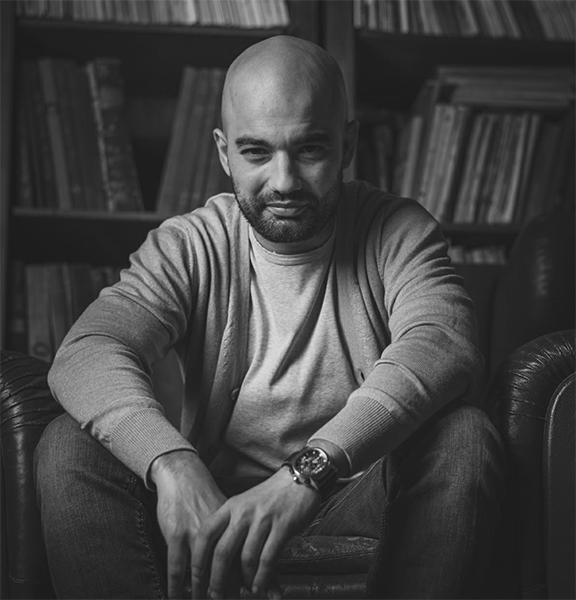
Nieddittas
Set between the land and the sea, the Arborea mussels farm operates in harmony with nature. For Nieddittas, the conservation of the marine-coastal ecosystem coincides with the quality of the product and the well-being of consumers. Production, which comes from water, must give back to water.
The Nieddittas plant rests on a thin strip of land, where the profile of the Gulf of Oristano merges with the ponds of Corru S’Ittiri, San Giovanni and Marceddì before rising and closing in its peculiar amygdala shape. The osprey and the heron scurry along the banks a few steps from the building, following the bubbles that signal a possible bite on the water surface. Few steps away dozens of pink flamingos are scattered among the reflections of the early morning.
"The environment in which you work must be protected, not exploited. Nature responds to exploitation by extinguishing the products it is otherwise capable of giving. Our mussels live in the sea, they are purified with the water of the compendium. For us it is essential that the sea is uncontaminated”, explains Carla Cubadda, Nieddittas responsible for the food safety.

Many are the actions with which Nieddittas protects the paradise that hosts its activities. The highly prized mussels are sold in strictly biodegradable bags, which are progressively replacing the plastic ones. The animals still viable but with the damaged shells are destined for the baskets that will be used for the aquaculture plant, a triangle of water obtained from the appendix of the Corru Mannu pond. Here the sea bream will feed on unsuitable mussels for the market. The shells are then shredded and periodically used to restructure the bottom of the pond, where conditions of anoxia could occur which are dangerous for breeding. Not only: thanks to a project carried out with the MEDSEA Foundation, the shells of the mussels will also be used for the construction of artificial islets, essential for preserving the settlement and nesting of various species of birds.
The area where Nieddittas operates is fenced to avoid poaching and the deposit of waste, an ever-present danger. Environment conservation continues at sea. Periodically, a team of divers cleans up the 60 hectares at sea that hosts the rows where the mussels are bred. From the umpteenth collaboration with MEDSEA came the idea of transforming the shells and plastics of the manufacturing processes into eco-design objects. Soon, thanks to the "Blue Lab" project, waste will turned into beautiful and sustainable elements of furniture
"We have decided to promote the MEDSEA circular economy project by virtue of the constant attention we have in protecting and safeguarding the environment in which we work - says Caterina Murgia, CEO of Nieddittas -. We always work to be a model in our sector, also in relation to environmental sustainability policies. Recycling waste from our production process will not only improve the sustainability of our supply chain by making it less polluting, but it will also provide advantages and benefits in terms of waste disposal"

Contacts

Nieddittas
Set between the land and the sea, the Arborea mussels farm operates in harmony with nature. For Nieddittas, the conservation of the marine-coastal ecosystem coincides with the quality of the product and the well-being of consumers. Production, which comes from water, must give back to water.
The Nieddittas plant rests on a thin strip of land, where the profile of the Gulf of Oristano merges with the ponds of Corru S’Ittiri, San Giovanni and Marceddì before rising and closing in its peculiar amygdala shape. The osprey and the heron scurry along the banks a few steps from the building, following the bubbles that signal a possible bite on the water surface. Few steps away dozens of pink flamingos are scattered among the reflections of the early morning.
"The environment in which you work must be protected, not exploited. Nature responds to exploitation by extinguishing the products it is otherwise capable of giving. Our mussels live in the sea, they are purified with the water of the compendium. For us it is essential that the sea is uncontaminated”, explains Carla Cubadda, Nieddittas responsible for the food safety.

"We have decided to promote the MEDSEA circular economy project by virtue of the constant attention we have in protecting and safeguarding the environment in which we work - says Caterina Murgia, CEO of Nieddittas -. We always work to be a model in our sector, also in relation to environmental sustainability policies. Recycling waste from our production process will not only improve the sustainability of our supply chain by making it less polluting, but it will also provide advantages and benefits in terms of waste disposal"

Contacts
Our voice from the territory

Legal head office: c/o Studio Associato Conti-Via Piemonte, 33-09127 Cagliari (Italy) - Headquarter: Via Nazario Sauro 1, 09123 Cagliari (Italy)
(+39) 070 0950439 | info@medseafoundation.org | medsea@pec.medseafoundation.org
Photos ©: Andrea Alvito, Maurizio Naletto
MEDSEA Logo designed by Stefano Asili
